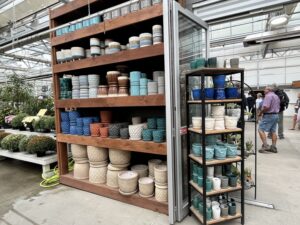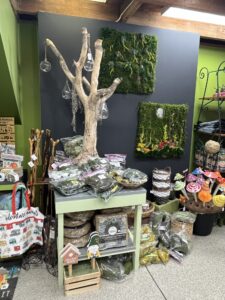Young Customers and Physical Stores
Brick-and-mortar is back in vogue and young consumers are leading the charge in the resurrection of physical retail. According to the National Retail Federation, a hefty 98 percent of Gen Z customers make most of their purchases in physical stores, and there is an obvious appeal to shopping for garden center products in person.
While a lack of access to credit cards may be a contributing factor to Gen Z’s preference for brick- and-mortar, their millennial predecessors can use all the plastic they want when making purchases, and 72 percent of them still prefer to do their shopping in physical stores according to Forbes.
So, what’s the big pull of brick-and-mortar retail, and why are physical stores so alluring for millennial and Gen Z customers? Let’s take a look.
The Added Appeal of ‘Try Before You Buy’
There are certain things intelligent smartphone apps still can’t do. Customers have to visit a physical store to see how cosmetics will react on their skin, what a costume will look like with their boots and hat from home, how the fabric of a garment fits their body, how the plant looks today and alongside other plants they’ll put in their yard or container, or just to have an in-person sensory experience with a brand.
Maybe this is why in today’s era of tech and disruption, Forbes says 77 percent of Gen Z customers would rather make a purchase in-store. In addition, Gen Z is more likely to engage with store associates than any other generation. Forbes reported, “Despite being perpetually on their smartphone, Gen Z shoppers are more likely to ask for help in a store. Twenty-eight percent of them would ask for help, versus just 21 percent across all other generations.”
Judging by Gen Z’s proclivity for engaging with actual human beings, it could look like some chatbots are going to be out of a job. It’s important to note, however, that young consumers value an omnichannel shopping experience — meaning in-store, on smartphones, with chatbots, etc. — and they expect to have a consistent experience with a retailer regardless of what channel they use to interact.
Browsing in Stores is a Social Experience
With all of the hustle and bustle of the modern retail world, contemporary consumers have learned to place a high premium on social experiences. A recent study by IBM shows that 43 percent of the time Gen Z spends online is actually spent connecting with peers, so this idea of the younger generations as removed and impersonal consumers is simply not true.
NRF reports that 56 percent of Gen Z-ers want the store experience to be “fun so they won’t get bored.”
Since young consumers consider in-store shopping to be a social experience and they expect it to be engaging, it’s important for retailers marketing to young consumers to create a dynamic physical retail environment with events that bring them in.
Holiday-themed or trendy events or “parties” are the perfect opportunity to bring in Gen Z customers and millennial parents. Don’t be afraid to promote your event on social media through Facebook or Instagram to reach new customers in your target demographic and make sure you have an associate on-hand to capture customers’ contact info for retargeting when you’re focused on entertaining.
Online Shopping Doesn’t Meet Expectations
Millennials and Generation Z have high expectations when it comes to the in-store experience, but the truth of the matter is that many garden centers simply aren’t equipped to compete when it comes to technology.
Millennials are twice as likely as boomers or Gen X to have their purchasing decisions influenced by the knowledgeability of sales staff. However, tech is an important part of the in-store experience for both millennials as well as Gen Z, and more than half of millennials find store visits more exciting when a retailer uses tech to show how their products meet their needs.
It’s unavoidable: technology is an essential component of the in-store experience for younger customers.
According to Vend, a whopping 66 percent of Gen Z customers would shop at a store more often if they could browse the inventory beforehand. “If you want to win over these customers,” Vend reported, “you need to make your inventory available online and ensure that it syncs with your offline catalog.”
Bringing It All Together
It all comes down to the brand experience for young customers. So, having fast and mobile-responsive websites is a must for modern independent retailers … as is training associates to answer common customer questions.
By creating dynamic in-store parties, niche retailers can bring millennial and Gen Z customers that they may not have been able to reach otherwise into their physical stores — creating a relationship and building sales on the next generation’s favorite shopping platform — the brick-and-mortar store.


















 Videos
Videos





